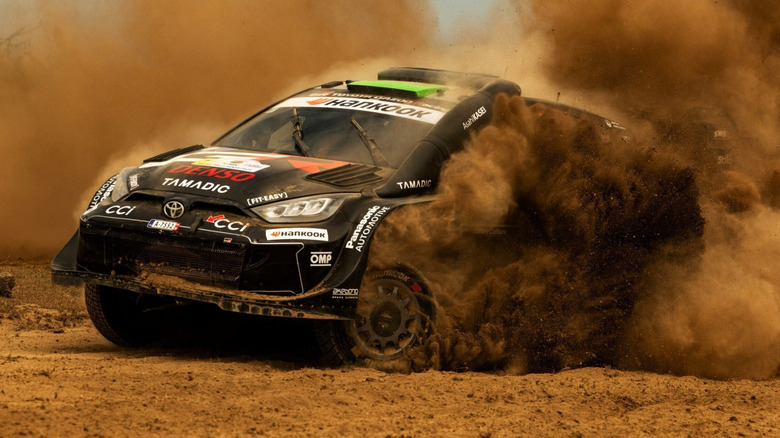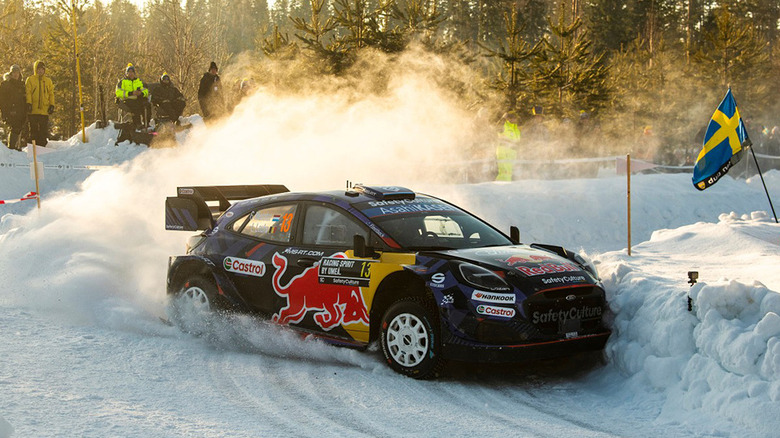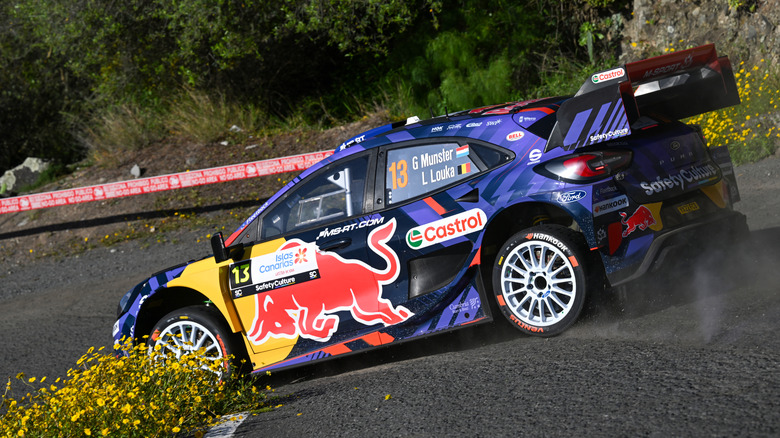What Tires Do WRC Rally Cars Use? (And Can You Put Them On Your Car?)
After three seasons supplying the World Rally Championship, tiremaker Pirelli bowed out of its supply role after 2024. For 2025, a new Korean manufacturer, Hankook, has stepped up in its place, developing a range of tires specifically for the championship. Unlike most other global motorsports series, WRC events see the world's best rally cars drive across a variety of surfaces, stretching from smooth asphalt roads to rutted, muddy trails and ice-covered mountain passes. That left Hankook with the tricky task of developing a range of tires that could withstand the pressures of competition across each type of terrain.
The current era of regulations sees multiple tiers of competition, with WRC1 being the pinnacle of those tiers. Three manufacturers — Toyota, Hyundai, and Ford — have developed WRC1 rally cars and compete for both a driver's and a manufacturer's crown. Below the top level of the sport sits WRC2, which features entries from the likes of Skoda and Citroën, then WRC3, and, finally, Junior WRC. Hankook is the exclusive tire supplier for all of these tiers of the sport.
Hankook's WRC range
Hankook offers teams a range of tires to choose from at each event, and picking the right tire for the surface and conditions of each stage can make a huge difference to a car's stage times. The selection available to teams varies based on the terrain of each rally. For dry asphalt events, Hankook offers its Ventus range of tires, while gravel events demand the use of tire models from its Dynapro line. For winter events, teams have the Winter I*Cept and Winter I*Pike tires, which are designed to deal with snow and ice, respectively.
Only one I*Cept and one I*Pike tire are available, but teams can choose from multiple variants of Hankook's Ventus and Dynapro tires depending on the stage conditions. For example, the Ventus Z215 is best suited for a mix of wet and dry surfaces, while the Ventus Z210 is designed to perform better in mostly wet conditions.
Should you put WRC tires on your road car?
While there isn't much stopping you from putting Hankook's WRC tires on your regular road car — assuming you have suitable wheels — it's probably not a good idea. Hankook does offer its WRC tire models through select motorsports dealers, and since all Rally1 cars have to be road legal to drive between stages, the tires can be legally used on the road. However, since they're designed for high-intensity motorsport use, they won't last anywhere near as long as a regular road car tire. For example, each WRC car will use several full sets of tires in a single weekend.
Also, each tire is designed for a very specific set of conditions and won't perform well outside of those conditions. For example, the soft compound Hankook Ventus Z215 is designed for use between 5-15 degrees Celsius (41-59 degrees Fahrenheit) on dry asphalt. In any other conditions, the tire's grip and lifespan will be reduced. Standard road car tires, in comparison, are designed to work effectively in a much wider variety of situations.
Hankook's WRC tires might not be suitable for a standard road car, but other models within the Ventus, Dynapro, and Winter I*Cept ranges are built for passenger car and truck use. The Dynapro series is a good off-road-focused tire for trucks like the Ford F-150, while the Ventus series is designed for high-performance road use. Meanwhile, the Winter I*Cept is best suited for roads covered in snow and ice.


